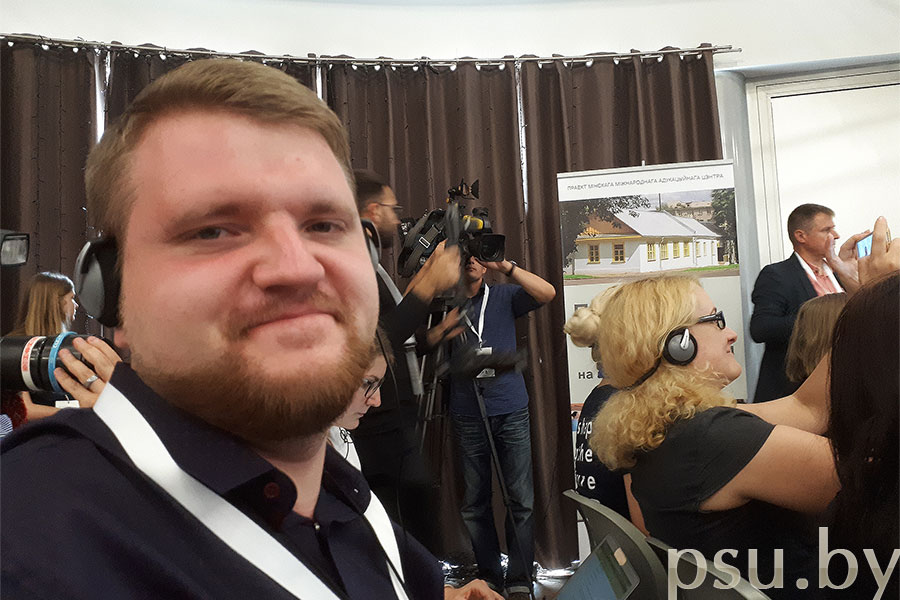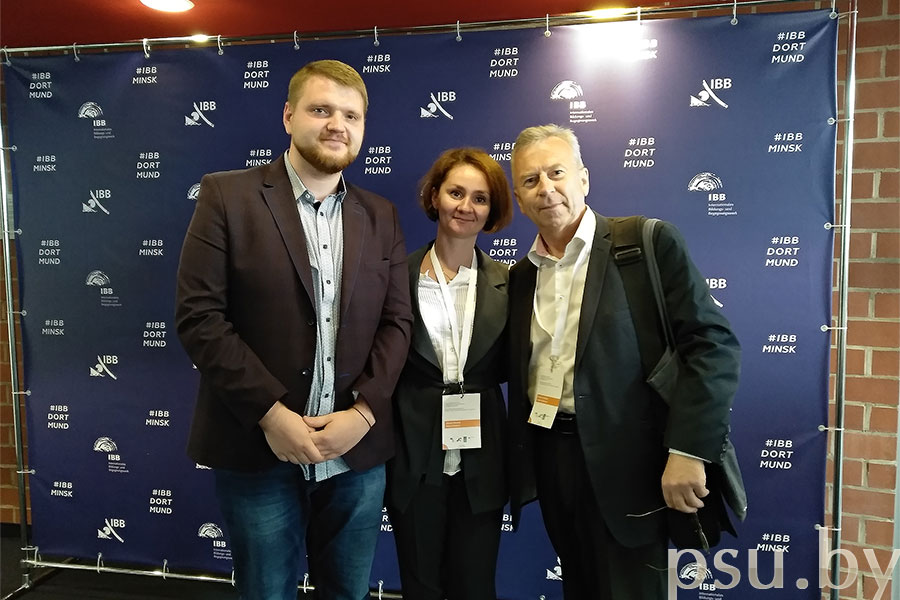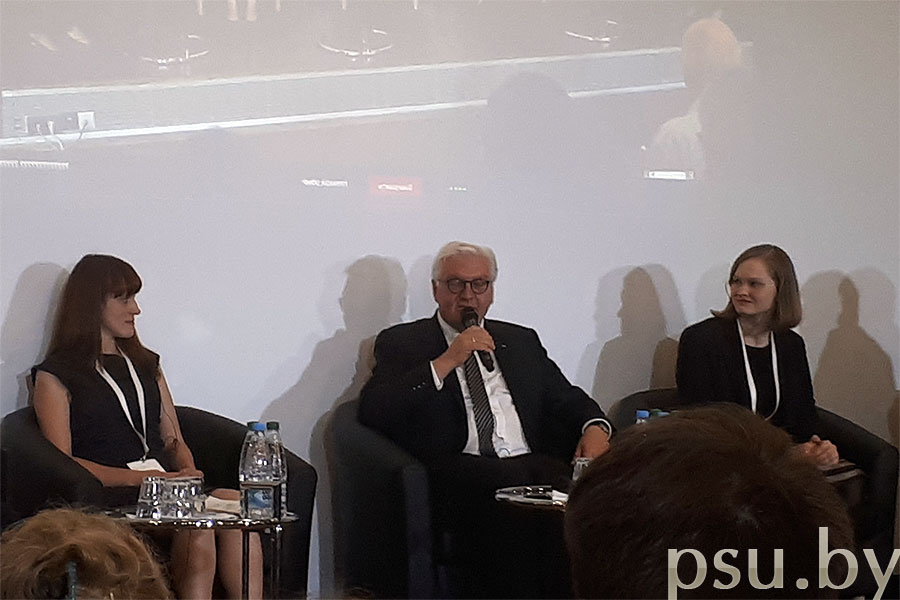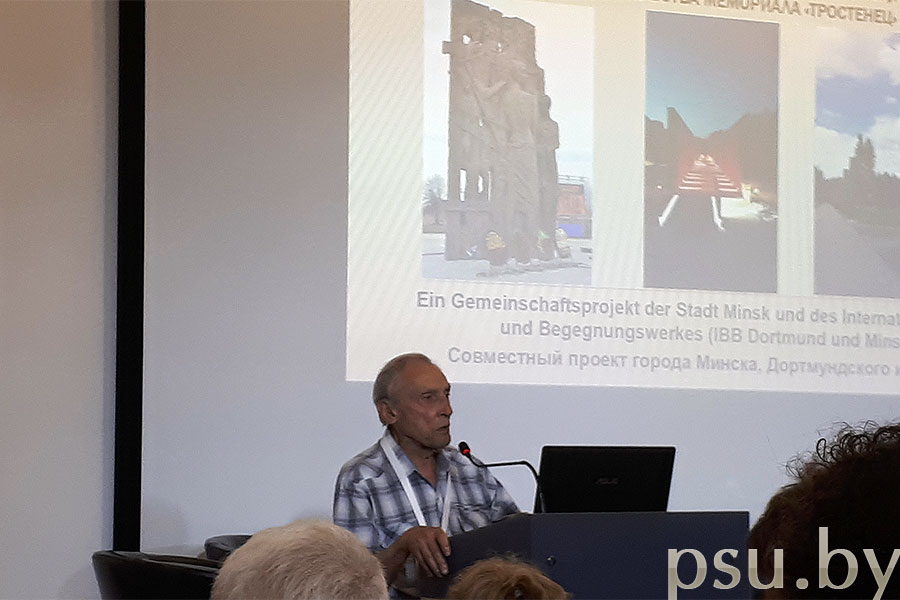From June 27 to July 1, 2018 the events dedicated to the opening of Trostenets Memorial Complex in Blagovshchina forest took place in Minsk International Education Center named after Johannes Rau.
For two days, June 27-28, young scientists from Russia, Ukraine, Poland, Germany and Belarus were taking part in a workshop headlined as "Memory Culture in Virtual Space". Within the event young historians got acquainted with the existing practices and forms of using the Internet and mobile apps to popularize the history and to keep the memory of the World War II events.
Participants of the workshop shared their thoughts about the development of similar projects and also talked about their own developments. Sergey Kaminsky (a Master’s student studying History of Belarus at PSU) presented a scientific and educational project – an electronic database entitled as "Polotsk. Liberation. Memory". It will keep the historical memory about the events of Polotsk offensive on the city's liberation from the Nazis in July 1944.

Young scientists were honored to attend the official opening ceremony of the 2nd stage of Trostenets Memorial Complex in Blagovshchina forest, where also the President of the Republic of Belarus Alexander Lukashenko, Federal President of Germany Frank-Walter Steinmeier, and Federal President of Austria Alexander Van der Bellen took part.
The International Conference "Remembering for Common European Future" with the participation of the scientists from the FSU and beyond was held on June 29-30. Alesya Korsak, PhD in History, Associate Professor at the Department of History and Tourism of PSU was invited to the event.

The podium discussion on the prospects for the development of European memory culture was held on the very first day. Federal President of Germany Frank-Walter Steinmeier and young historians (Alexander Dolgovsky from Belarus, Viktoriya Naumenko from Ukraine, Dmitry Alekseev from Russia and Hannah Drasnin from Germany) participated in the discussion.

Apart from that, a former prisoner of the Minsk ghetto Naum Kheifets and a former student of the Jewish grammar school "Yavne" in Cologne told their personal stories to the audience during the discussion of the significance of Trostenets Memorial Complex for survivors of the military events. They were lucky enough to avoid death during the World War II.

Several thematic units took place within the framework of the conference on June 30:
- speeches of the representatives from the cities where deportations to Trostenets were held, and speeches of religious organizations about the significance of Trostenets;
- the discussion with representatives from Belarus, Germany, Austria and the Czech Republic about Trostenets as a place of destruction in the European countries' memory culture, also the Wolds Café with 6 thematic forums.
The researchers from Polotsk State University participated in the forum "Development of Memorials as Educational Areas and Perspectives of Keeping Memory for Youth." The participants shared their experience with young generation, including the methods of holding summer schools, creating museum expositions, etc.
The last day of the conference was ended with summarizing the results and a speech by Dr. Thomas Bon, a historian, professor of Eastern European history at the University of Giessen.
The participation of the representatives from Polotsk State University in the events dedicated to the opening of the second line of Trostenets Memorial Complex in Blagovshchina forest made it possible to study the experience (of Germany, mainly) of using scientific knowledge in the field of the World War II memorialization and transferring this experience to the young generation through forums, summer schools, "world cafes", etc. Also, due to representatives’ participation, we have lots of opportunities to develop contacts with scientists from near and far abroad who are studying the problems of the Holocaust and problems of perpetuating the memory of both victims of Nazism and the dead soldiers of the World War II.